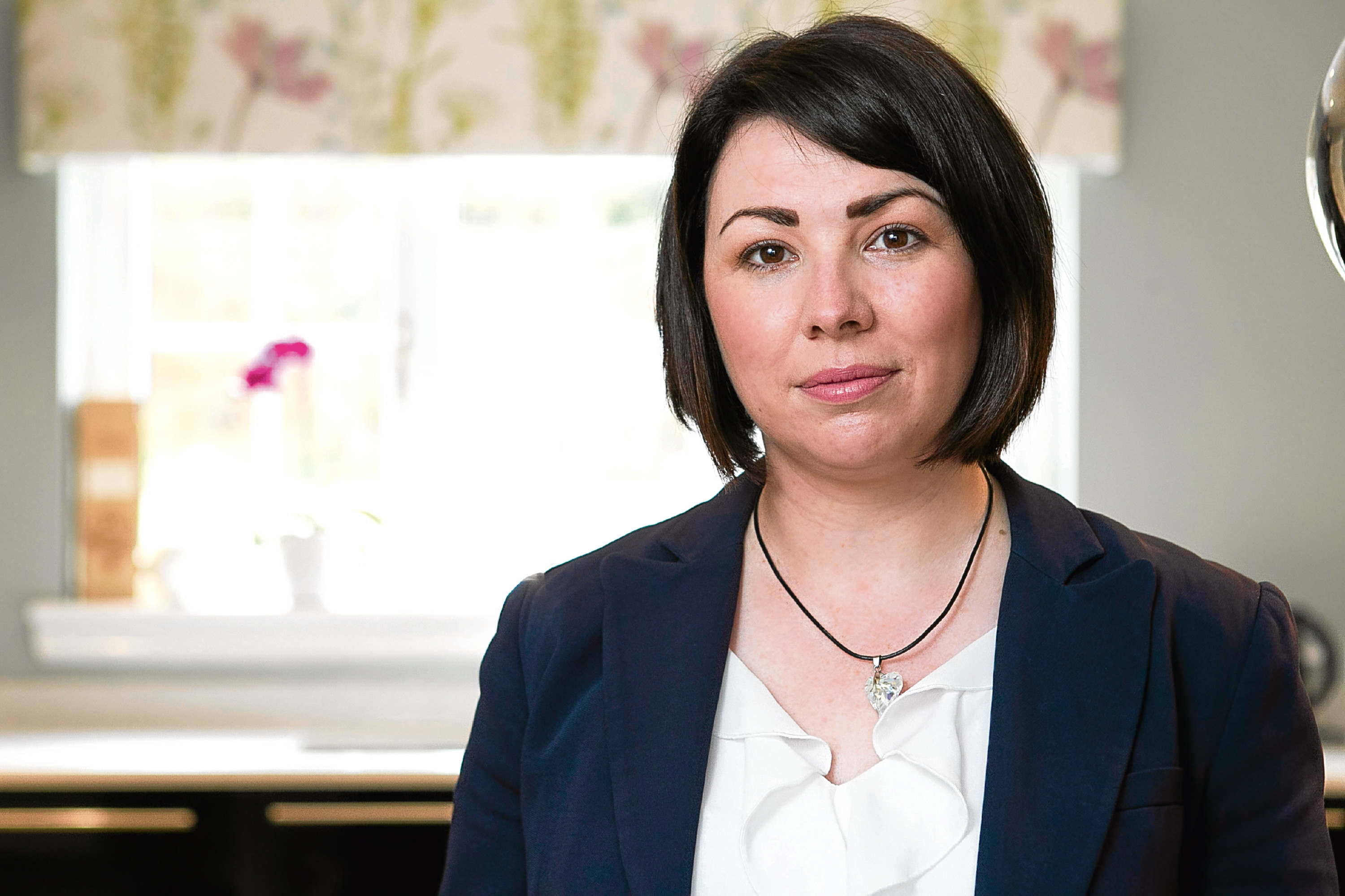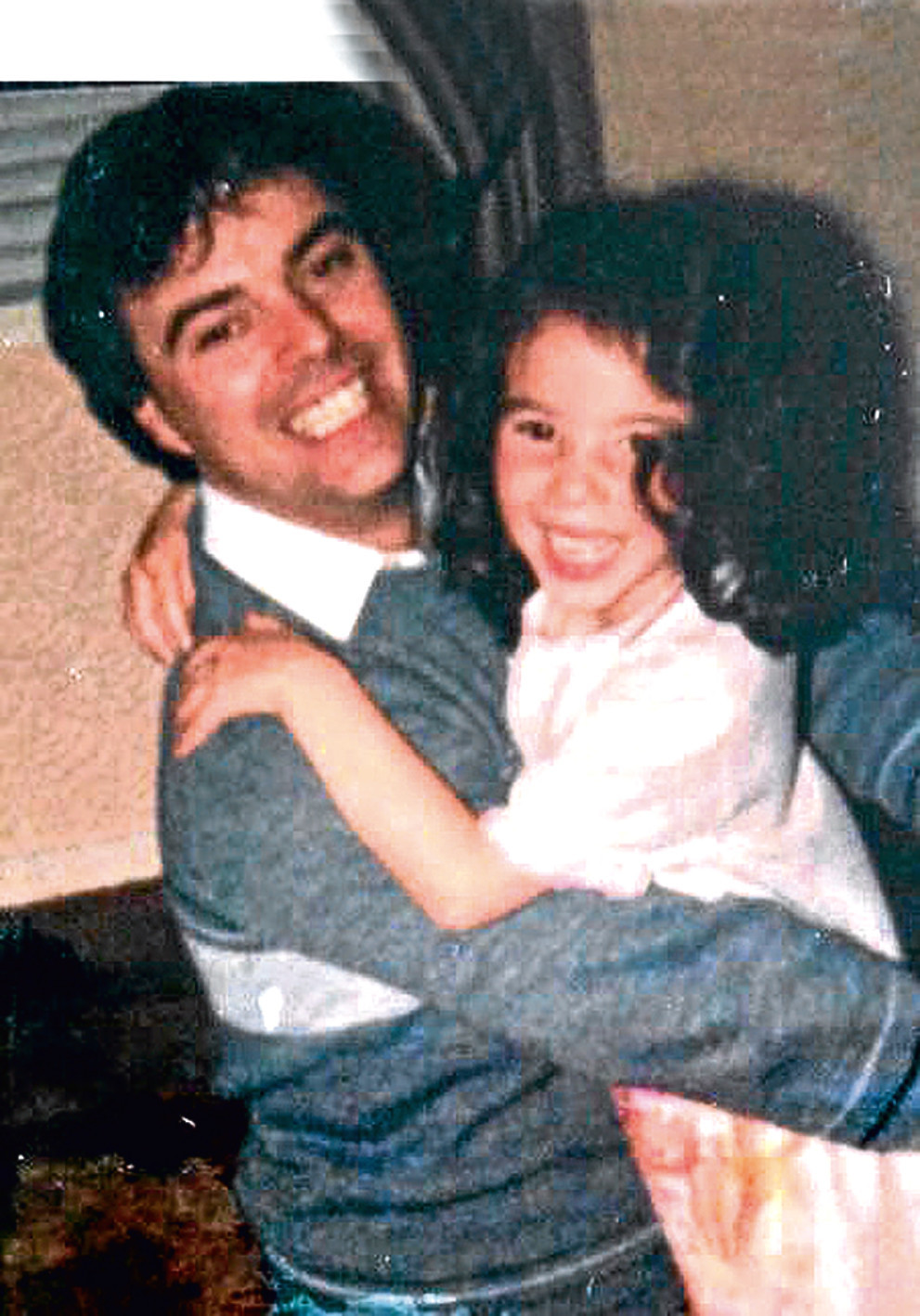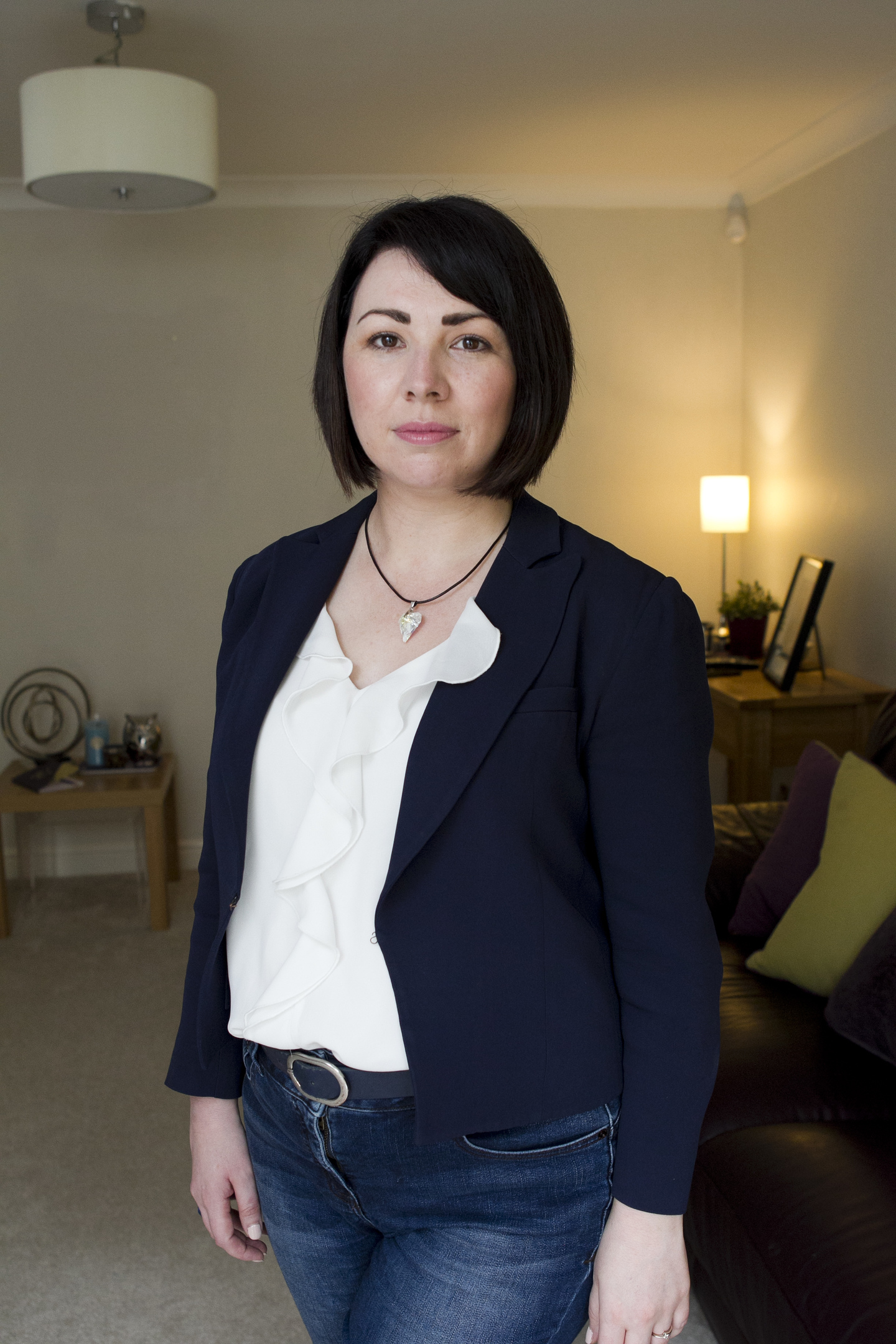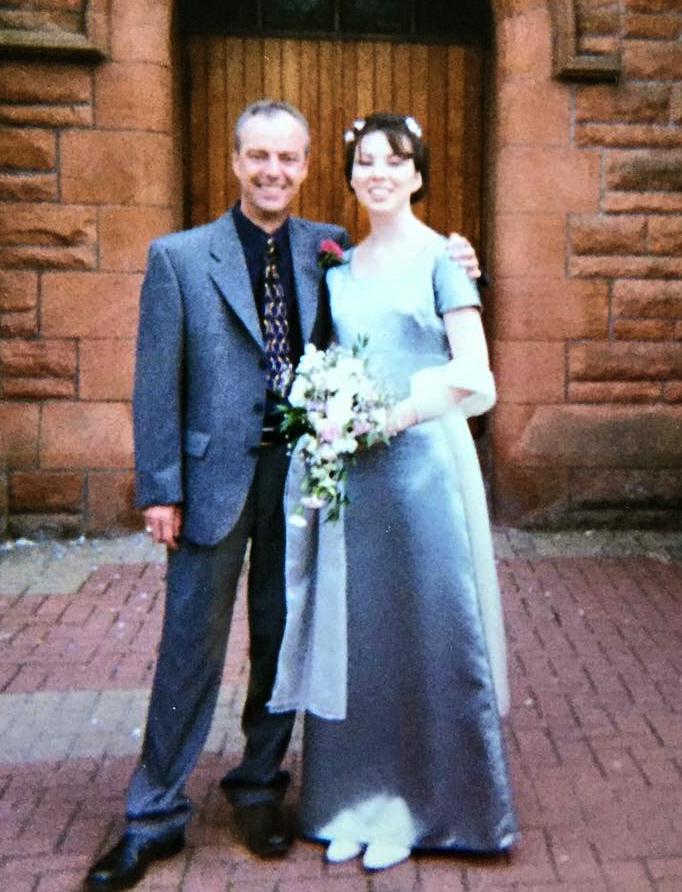
GROWING up, Monica Lennon was always a daddy’s girl. In all the ways that matter most, she still is.
Now 36 and an MSP, she talks with pride about her father, Gerard Ward, about his humour, his socialism, and his love for his family.
About his drinking, however, about the alcoholism that killed him at 60, she speaks only with loss and regret.
She said: “Even when my dad was alive, when I stopped being angry with him or feeling guilty about him, it was only sadness that was left.
“I’d often be furious with him for putting drinking first, before us, before everything.
“There were blazing rows but looking back, it’s just sadness. All that pain and torment. We just wanted him to stop. That’s all we ever wanted.”
Only his death, would stop him and Ms Lennon is speaking about her family’s heartache in an attempt to begin a new national discussion about the devastation inflicted behind closed doors by Scotland’s drinking culture.
She said: “I was a daddy’s girl, always running to the gate, waiting for him to come home.
“Like anyone, I wanted my mum and dad to be proud of me but especially my dad.
“I was hoping that I’d make him so proud that he’d give up drinking, that he would hang on my every word and stay out the pub when I asked him to.
“When my daughter Isabella was born, for example, I thought this would be the thing that changed everything.
“Dad absolutely loved her. He was retired by then and they had a lot of good times together but he kept drinking.
“Or when I was elected as a councillor in 2012. I hoped that might be the thing.
“He was always a Labour man so I was hoping that me getting involved in politics might get him going again.
“He was bored and lonely and if I was going to meetings or whatever, I’d say, “Dad, come with me” but he was in denial, just full of excuses. He couldn’t give up alcohol.”
Her dad was a social drinker when she was a young girl growing up in Blantyre but over the years, his visits to the pub became more frequent.
She said: “It’s hard to say at what point it went out of control but it did. My dad was a health and safety officer, making sure people were looked after and protected and he was good at his job. He could protect everyone but himself.”
Her father’s drinking got worse as Ms Lennon entered her teens and she remembers escalating tension between her dad and mum, Helen.
She said: “As a young person, you’re thinking what’s wrong with me? What’s wrong with us? Why is he choosing the pub when we’re right here?”
Every child has right to grow up safe from harm, says Alcohol Focus Scotland’s Alison Douglas
A spell in rehab was followed by Alcoholics Anonymous when Ms Lennon accompanied her dad to meetings in Glasgow because he didn’t want to be recognised in his home town. But his sobriety did not last.
Ms Lennon said: “He had all the books and knew all the theory but, in his heart, he never believed he had a problem.”
“People say it’s a choice but it’s no life and it’s no choice. My dad was steeped in denial.
“He told himself that he didn’t drink in the house, that he worked hard, he supported his family. He couldn’t see, or admit, what his drinking was doing to us.”
Her parents separated and later divorced, her younger brother moved out, and Ms Lennon, by then a student, was living alone with her father.
She said: “I was worried sick about him. He would say he was going for a walk and his mental health was so poor that I would be worried he was going to harm himself.
“He was never aggressive but he was angry and depressed.
“Eventually, I accepted my dad’s drinking. You have to, I guess. You try persuasion, you try reason and compassion. Then when that doesn’t work, you try the tough love thing.”
It was the tough love thing, or something like it, that made her take the hardest decision, she says, to ask her father not to attend her wedding.
She said: “There are so many things that you can’t think about because it’s too painful.
“I got married when I was 24 and my dad wasn’t there. That’s so awful.
“His drinking was so out of control that he couldn’t promise to be sober or that he wouldn’t be drinking in the days before the wedding or drunk on the day.
“Every bride wants her dad walking them up the aisle and saying nice things about them in their speech.
“I haven’t been to a wedding since when I haven’t got choked up when I see the bride with her father. It’s lovely to see but it’s still awfully sore.”
Every child has right to grow up safe from harm, says Alcohol Focus Scotland’s Alison Douglas
Ms Lennon attended counselling while a student to cope with the pressures caused by her dad’s drinking and one of the reasons she is talking about it is to highlight the need to make it easier for young people, particularly school children, to get help.
She said: “From experience , I know that young people who are living with this are unlikely to open up about it.
“They might if there was a trusted person to speak to with no need for a referral or to label someone with a mental health problem.”
Ms Lennon first spoke about her dad’s drink-related death during First Minister’s Questions at Holyrood last month but, wants a wider debate about the damage done by alcohol in Scotland.
She fears much of the misery inflicted by drink remains hidden as families of alcoholics suffer in silence while friends and family remain reluctant to intervene
She has now won cross-party support for a Holyrood debate to highlight the rising death toll linked to drug and alcohol addiction, and the need for action to reduce the stigma and ensure people can more easily get help.
Ms Lennon, a Scottish Labour MSP for Central Scotland, said: “There is still that thing in Scotland where we press people to have a drink and treat anyone not drinking with slight suspicion.
“We need to be more aware of the damage being done by problem drinking and that will only happen when people are comfortable talking about it.
“We need to change the conversation around alcohol. There is legislation, policies and funding that can help but the culture has to change.
“Too many people are dying and too many children are storing up trauma for years to come, for us to do nothing.”
After a number of hospitalisations because of drink-related illness, her dad, who suffered lung problems, was taken to Hairmyres Hospital, in East Kilbride, where pneumonia was diagnosed. His daughter said: “He was only 60 but looked much older. He was so thin and frail.
“He was hooked up to ventilators and quite sleepy. It was hard to know how much he was hearing.
“We had a couple of days like that. My mum came up on the Thursday night and we sat together. He knew we were there. The next morning we got a call to come up.
“You would think that you’d be prepared after all the years waiting for the call. But you’re not, not one little bit.”
“I just sat and held his hand and sang to him. He loved music, all sorts of stuff.
“He was into Deep Purple and Iron Maiden but then he loved the Drifters. He used to sing their songs at karaoke.
“I just sat and held his hand and sang Dirty Old Town, the Pogues’ song, until he closed his eyes.
“He died on May 22, 2015, a year before I was elected to Holyrood.
“I wish he had been around to see that. I think he would have been proud.
“I’m sure he would have been. He always said I was his pride and joy. I wish that had been enough.”
No publicity for experts’ safe levels
More than 90% of adults don’t know what the weekly safe drinking guidelines are, a study has shown.
In 2016, health chiefs changed the guidelines and said men and women who drink regularly are safest not to drink more than 14 units of alcohol – equivalent to seven pints of beer – per week.
The changes were agreed by the UK’s four Chief Medical Officers (CMO) with England’s CMO, Dame Sally Davies, arguing it was to help people make “informed decisions” about their drinking.
But health campaigners have been left dismayed that a communications drive about the changes has still not happened.
A nationwide study published in the Journal Of Public Health last month included an opinion poll which found 71% of people were aware of the new guidelines but just 8% knew the recommended limits.
Warnings on the side of bottles or cans about the dangers of excessive drinking have long been criticised by the health lobby, who argue that messages based on scientific evidence – such as the dangers of liver damage or cancer from alcohol – should be conveyed, in a similar way to what now happens on cigarette packets.
An Alcohol Focus Scotland spokeswoman said: “It’s really disappointing that, nearly two years on, nothing has been done by government to communicate and explain the guidelines.”

Enjoy the convenience of having The Sunday Post delivered as a digital ePaper straight to your smartphone, tablet or computer.
Subscribe for only £5.49 a month and enjoy all the benefits of the printed paper as a digital replica.
Subscribe

